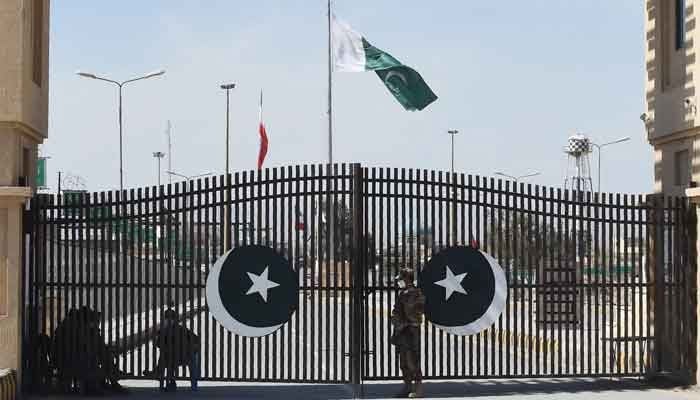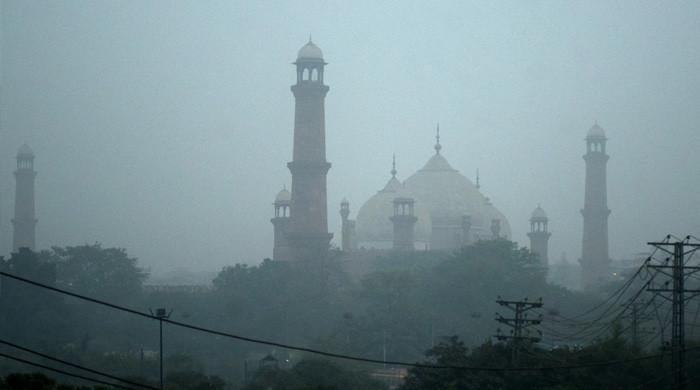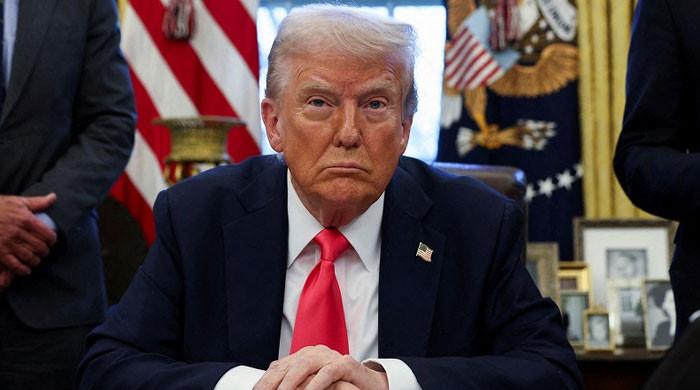Reconsidering our regional policy
Any flaws in formulation and implementation of CPEC-related projects should be removed
January 15, 2025

Pakistan needs to recraft a regional policy rooted in strategic realities at the regional and global levels and is cognisant of its short- and long-term political, security, economic and cultural implications for the country.
Unfortunately, Pakistan’s current regional policy, which is based mostly on wishful thinking and flawed analysis, does not measure up to this high standard. If we persist in this flawed approach in dealing with countries in our neighbourhood and regional issues, it is likely to cause serious harm to Pakistan’s security and economic well-being.
At the regional level, India’s rapid rise over the past three decades, which has catapulted it to the position of the fifth largest economy in the world with GDP amounting to about $4 trillion as against only $374 billion for Pakistan, is perhaps the most important development with obvious implications for Pakistan’s security and economic well-being.
India’s much higher GDP growth rate estimated to be about 7.0% per annum currently compared with about 3.0% per annum for Pakistan means that with the passage of time, India’s advantage over Pakistan in the economic field will continue to widen until and unless Pakistan is able to accelerate its economic growth rate to well over 7.0% per annum.
India’s rapidly growing economic power combined with its high level of military expenditure, its hegemonic designs in South Asia, the growing sway of Hindutva in India, New Delhi’s belligerent style of diplomacy in dealing with Pakistan, its attempts to destabilise Pakistan through acts of terrorism, its view of Pakistan as a major obstacle in the realisation of its strategic goals in South Asia, West Asia and the Middle East, and outstanding Pakistan-India disputes particularly the Kashmir dispute pose a serious and long-term threat to Pakistan’s security and economic well-being.
The US decision to strengthen its strategic partnership with India — as recently re-affirmed by Jake Sullivan, US national security adviser, in New Delhi — and help build it up as a major world power of the 21st century to counter the expansion of China’s power and influence in South Asia and the Indian Ocean region has the indirect effect of disturbing the strategic balance in South Asia in favour of India.
This development provides an additional justification to Pakistan for seeking closer friendly relations and strategic cooperation with China to restore strategic balance in South Asia. In this context, CPEC which aims at enhancing Pakistan-China cooperation in economic, commercial, industrial, agricultural, transportation and infrastructure fields by encouraging Chinese public and private investment on a massive scale in Pakistan, assumes critical importance in Pakistan’s attempts to accelerate its economic progress and safeguard its security. It is not surprising that the US and India are opposed to CPEC which is viewed by them as a vehicle for enhancing China’s influence in South Asia and the Middle East.
Instead, both the US and India would like to weaken Pakistan’s strategic links with China to increase Pakistan’s dependence on the US and develop Pakistan’s east-west commercial and transportation links with India to enable it to dominate the region and ultimately make Pakistan a junior partner in the Indo-US plan to counter China.
It is in this context that the propaganda inspired by the US and India against CPEC, which slowed its implementation during the period from 2018 to 2022, needs to be seen. While any flaws in the formulation and implementation of CPEC-related projects should be removed, we should not allow this propaganda to succeed in achieving its goal of weakening Pakistan-China friendship and cooperation in various fields which are in their mutual interest and in the interest of strengthening regional peace and stability.
The resumption of Pakistan-India trade would be beneficial for both sides as per the principle of comparative advantage provided it is on a level playing field, promotes the development of Pakistan’s industrial and agricultural sectors, and safeguards the overall health of its economy. In the management of Pakistan-India trade, we should be mindful of the principle of social and cumulative causation propounded by the famous Swedish economist, Gunnar Myrdal, which affirms that the economically advanced and larger member states tend to benefit more from free trade and any scheme of economic integration than the less developed and smaller countries if left to market forces alone.
Therefore, the resumption of Pakistan-India trade would necessitate special measures to safeguard the progress of vitally important sectors in Pakistan, especially in the industrial field in which India enjoys a considerable advantage over Pakistan. In the absence of such measures, Pakistan would be reduced to the status of supplier of raw materials to the benefit of industries in India. Those in Pakistan who favour free trade with India would be well advised to study carefully the reasons behind the current trend in the US and European countries towards the imposition of high tariffs on imports from China to protect their industries.
Any scheme of regional economic cooperation requires several prerequisites for its success — notably a community of interests, a feeling of common destiny and a shared vision of the future, economic complementarities, geographical proximity, cultural affinities, and the absence of serious disputes and hegemonic designs among its member states.
Saarc was a stillborn child because other than geographical proximity it did not meet any other criterion for its success. It has, therefore, died its natural death and Pakistan need not waste its energy on resuscitating it. Instead, it should focus on the Economic Cooperation Organisation, a regional organisation of ten member states, as the organisation of choice for regional economic integration as it meets most of the prerequisites for its success.
No discussion of Pakistan’s regional policy would be complete without emphasising the importance of Pakistan’s friendly relations with Iran and Afghanistan for its security and economic well-being. Unfortunately, Pakistan has grossly mismanaged its relations with these two important neighbours over the past three decades with attendant adverse consequences.
We need to learn from our experience and not allow adverse developments of a transitory nature to distract us from the long-term goal of developing friendly relations and cooperation with these two important countries which are closely linked with Pakistan through historical, cultural, and economic ties. Recent developments in Bangladesh offer valuable opportunities to Pakistan for improving mutual friendly relations, which Islamabad should not miss. The same approach of developing friendly relations with necessary variations should be adopted in managing our relations with Sri Lanka and Nepal.
Overall, Pakistan’s regional policy should be guided by the strategic imperative of peace in our neighbourhood so that we can avoid a nuclear holocaust and concentrate our resources and energy on the vital task of economic development and eradication of poverty.
In pursuit of the goal of peace in our region, we should take necessary steps to defuse tensions, adopt CBMs, and focus on peaceful settlement of disputes including the Kashmir dispute in the management of our relations with India. However, in our quest for peace, we should not lower our guard and neglect the legitimate demands of our national security.
The writer is a retired ambassador and author of ‘Pakistan and a World in Disorder — A Grand Strategy for the Twenty-First Century’. He can be reached at: [email protected]
Disclaimer: The viewpoints expressed in this piece are the writer's own and don't necessarily reflect Geo.tv's editorial policy.











